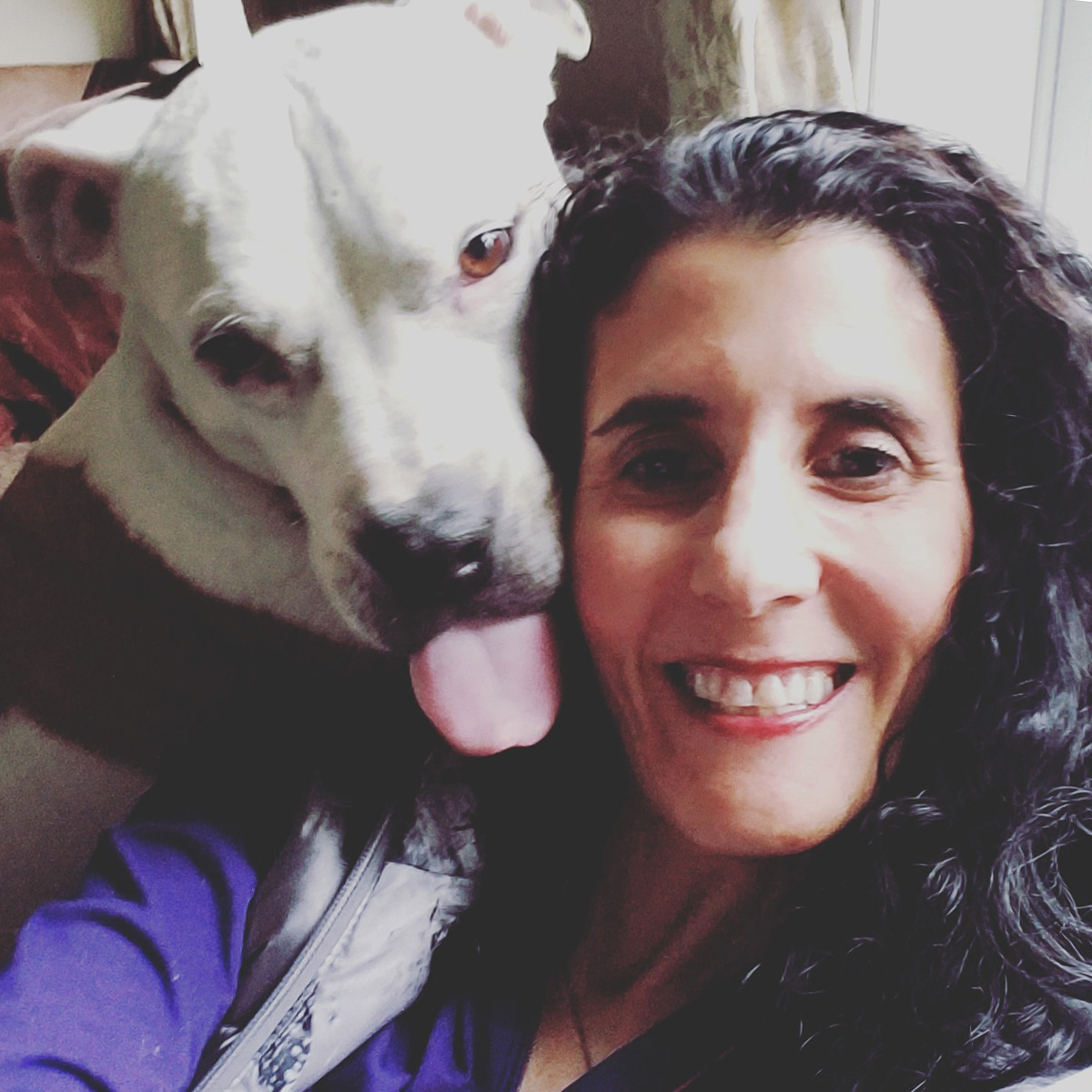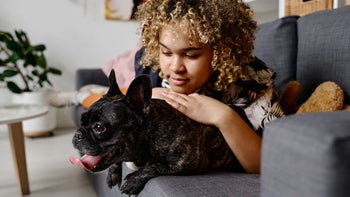
What Can Dogs Not Eat? 30 Foods That Are Poisonous to Dogs
Key takeaways:
Certain fruits, vegetables, and ingredients commonly used in human foods can be seriously harmful to dogs.
Common foods that dogs shouldn’t eat include cherries, grapes, onions, chocolate, coffee, salty foods, and macadamia nuts.
Call your vet, an emergency animal clinic, or an animal poison control center if your dog has eaten something toxic.
Table of contents

Most of us give in occasionally and share a bite of a meal or snack with our four-legged companion. What’s the harm, right?
Well, some human foods can be surprisingly harmful to dogs. So before sneaking your dog a scrap, read on to learn which human foods could send your pup straight to the emergency vet.
What foods are poisonous to dogs?
Many foods and food additives that are fine for human consumption can cause serious health problems if consumed by our pets. The list below outlines 30 foods poisonous to dogs.
Save on the top 10 pet medications
Save big on common pet medications like Fluoxetine and Levetiracetam at your local pharmacy.

GoodRx is NOT insurance. GoodRx Health information and resources are reviewed by our editorial staff with medical and healthcare policy and pricing experience. See our editorial policy for more detail. We also provide access to services offered by GoodRx and our partners when we think these services might be useful to our visitors. We may receive compensation when a user decides to leverage these services, but making them available does not influence the medical content our editorial staff provides.
Keep in mind that this list isn’t exhaustive. Unless you know for sure that a human food is safe for your dog, reach for the dog treats instead.
1. Avocados
Your dog should not eat avocados. Avocados contain persin, which is toxic for dogs because it causes diarrhea and vomiting. It can be deadly in larger amounts. Avocado pits can also put your dog at risk of an intestinal obstruction.
Though avocado is considered a healthy fat for humans, it is too high in fat for dogs, putting them at risk of pancreatitis. Smaller amounts of avocado can be safe for dogs. But it’s still best to avoid avocado altogether.
2. Cherries
The stems, leaves, and pits of cherries contain cyanide, a potentially deadly chemical if ingested in large enough quantities. Cyanide kills tissues by making it difficult for them to use oxygen.
The only part of a cherry that does not contain cyanide is the fleshy part around the pit. But we don’t recommend feeding that to your dog, either. Cherries can get caught in your pup’s airway and become a choking hazard.
3. Grapes and raisins
Both grapes and their dried form, raisins, are highly toxic foods for dogs. It takes only a few grapes or raisins to potentially cause sudden kidney failure in your dog. Keep these far out of reach. Other foods containing grapes, such as grape juice, are also poisonous.
Save these hotline numbers: If your dog consumed something poisonous, calling a pet poison hotline can help save their life. Learn what to expect if you need to call.
Reasons dogs vomit: Not sure why your dog is throwing up? It could be one of these causes of dog vomiting.
Scented candle safety: Scented candles may brighten up your home. But if you’re concerned about their safety around dogs, read this for best practices.
4. Tomatoes
Dogs should avoid tomatoes. Fully ripened tomatoes are safe, but the green part of the plant contains solanine, a substance that is toxic to dogs. To avoid any issues, it’s better to steer clear of feeding your dog tomatoes.
5. Mushrooms
Avoid feeding your dog mushrooms. Though only a fraction of mushroom species are known to be poisonous to dogs, those that are can be deadly.
Identifying mushrooms can be tricky, even for experts. So you can never be 100% sure your dog is getting a safe variety. Even one bite of a toxic mushroom could be fatal. To be safe, avoid the fungi.
Read more like this
Explore these related articles, suggested for readers like you.
6. Onions
Dogs should never eat onions. Onions contain a compound that damages dogs’ red blood cells, causing anemia.
Check all ingredients in your foods, and do not feed your dog anything that contains onion, onion powder, or onion flakes. The same goes for other alliums, including leeks, garlic, and chives.
7. Garlic
Garlic is considered the most toxic of all plants in the allium family. Keep all foods containing garlic out of paw’s reach. Garlic can severely damage a dog’s red blood cells, causing them to rupture.
8. Wild berries
Wild berries are another food dogs should not eat. Though not all of these berries are poisonous, many are. It’s always better to be safe than sorry.
9. Rhubarb
Commonly called the pie plant, rhubarb is frequently used in desserts. But it contains soluble oxalate crystals, making it toxic to pets. If ingested in large enough quantities, rhubarb can cause kidney failure in dogs.
10. Sugar-free candy and gum
Sugar-free candy, mints, and gum often contain xylitol. Xylitol — also called birch sugar — is a lower-calorie sugar replacement. This artificial sweetener can cause severe illness and death in dogs.
To avoid xylitol poisoning, check the ingredients label on products, especially those labeled “low sugar” or “sugar free.” Keep all items containing xylitol out of reach of pets.
11. Some peanut butters and other nut butters
Peanut butter is typically a food dogs can eat. But check the ingredients before giving your dog peanut butter or other nut butters, because some contain xylitol.
Even small amounts of xylitol can cause the following in dogs:
Low blood sugar
Liver failure
Death
12. Flavored waters
Flavored waters, a hugely popular option for humans, should be kept away from dogs. These products often contain xylitol, as well.
13. Ice cream
Ice cream isn’t a great treat for your pup. Dogs can’t usually process the lactose in milk products such as ice cream. Dogs who do get a lick of your cone may experience digestive troubles, including:
Vomiting
Diarrhea
Gas
Stomach pain
In addition, ice cream can contain ingredients that are toxic for dogs. Chocolate, for example, is definitely a no for pups. Ice cream — especially sugar-free types — may also contain xylitol. This artificial sweetener is very toxic to dogs.
14. Chocolate
Chocolate is poisonous to dogs because it contains theobromine and caffeine. Both of these components cause potentially deadly heart and central nervous system problems in dogs.
The darker the chocolate, the more theobromine it contains. So it takes less dark chocolate to cause toxicity than milk chocolate. Some chocolate also contains xylitol, which is harmful for dogs.
15. Pudding snacks
It’s best to keep pudding snacks away from your dog. They may contain xylitol or chocolate, which are toxic for dogs.
16. Coffee
Many humans start the day with a cup of coffee. But our four-legged companions don’t need the caffeine jolt. Also, dogs are far more sensitive to caffeine. Even a small amount can be toxic to them.
Make sure that used coffee grounds are disposed of where a curious pup can’t get them. And remember that caffeine isn’t found only in coffee.
17. Sports and energy drinks
Sports and energy drinks often contain caffeine, which is a no-go for your dogs. Caffeine can cause issues such as:
Seizures
Tremors
Abnormal heart rhythms
Vomiting
Diarrhea
In addition to caffeine, many sports drinks contain xylitol, a dangerous artificial sweetener. Check the labels on other energy-boosting products to make sure your dog stays away from caffeine.
18. Tea and tea bags
Tea may help you relax, but its caffeine content can make it poisonous for dogs. Keep your canine companion away from your teacup and away from tea bags that are in the trash or compost pile.
19. Soda
Keep your pup away from soda, as well, since it can contain caffeine. Some sodas, especially if they are sugar-free, also contain xylitol. Both caffeine and xylitol are toxic to dogs.
20. Baked goods
Baked goods can contain a number of substances that can be harmful for dogs. Whether homemade or from a box, these items can contain:
Xylitol
Caffeine
21. Alcohol
Dogs should not consume beverages or foods that contain alcohol. Some dogs are attracted to alcoholic drinks, so don’t leave alcoholic beverages unattended.
Alcohol depresses the central nervous system and can cause the following symptoms in dogs:
Vomiting
Diarrhea
Decreased coordination
Difficulty breathing
Weakness
Collapse
Tremors
Coma
Death
22. Macadamia nuts
If you are a fan of macadamia nuts, keep them out of reach of curious paws. All it takes is a few to poison a midsize dog. Dogs with macadamia nut poisoning may show:
Weakness
Depression
Vomiting
Tremors
23. Raw or undercooked meat
Recently, some dog owners have embraced raw-feeding. This trend advocates feeding your pup a raw diet to simulate what their ancestors ate in the wild. But just because wild dogs ate raw meat, that doesn’t mean it’s a food your dog can eat.
Raw or undercooked meat and eggs carry bacteria such as Salmonella, E. coli, and Listeria that can make humans and dogs sick.
24. Uncooked doughs containing yeast
If your dog takes a bite out of your bread, you probably don’t have to be concerned. But uncooked yeast dough is definitely a food your dog should not eat.
The dough can rise once in your dog’s stomach, causing it to bloat. Bloating can cause the stomach to twist, which is a life-threatening emergency.
Another problem with yeast dough is that the yeast ferments carbohydrates in the dough, producing ethanol (alcohol). Ingested yeast dough can potentially cause alcohol poisoning in your pup.
25. Bones
You may have heard that giving your dog cooked bones is unsafe. But many vets believe that all bones pose a health risk, cooked or uncooked.
Several injuries and illnesses can result from dogs chewing on bones, including:
Broken teeth
Mouth and tongue injuries
Digestive tract blockages
Bones getting stuck around the dog’s lower jaw
Vomiting
Diarrhea
Choking
Injuries to the stomach and intestines
Bleeding from the rectum
Bones getting stuck in the stomach
Bone fragments scraping the lining of the digestive tract
Illness caused by bacteria on raw bones
There are many alternative chewing products on the market for dogs. Ask your vet for a recommendation rather than risking an emergency visit.
26. Moldy food
Even if you don’t intentionally give your dog moldy food, a curious nose may locate something you’ve tossed in the garbage. Mold produces aflatoxin, a toxic substance that can cause liver failure. If dogs eat food from the garbage or compost pile, mold can cause:
Tremors
Vomiting
Irregular heartbeat
Lack of coordination
Death
Keep all garbage cans securely covered where your dog cannot access them. Also, keep all compost piles out of reach.
27. Milk
Milk contains a sugar called lactose. Dogs lack the enzyme lactase, which breaks down lactose in milk. This means dogs are usually lactose intolerant. So, although milk isn’t exactly toxic for dogs, giving your pup milk can cause them stomach upset and diarrhea.
28. Salt
Salt can be toxic to dogs. If your dog ingests too much salt, it can lead to:
Diarrhea
Vomiting
Lack of energy
Increased thirst or urination
Lack of coordination
29. Apricots
Apricots can be toxic to dogs because the tree’s stems, leaves, and seeds contain cyanide. Cyanide is poisonous to dogs, and it can prevent your dog from getting enough oxygen. It can also lead to breathing trouble, shock, and death.
30. Star fruit
Star fruit may be toxic to dogs if they eat too much of it. This Southeast Asian fruit contains soluble calcium oxalate, a chemical that’s poisonous to dogs. In dogs, star fruit poisoning can lead to:
Diarrhea
Vomiting
Weakness
Lack of energy
Loss of appetite
Drooling
Bloody urine
Is it ever OK for your dog to eat human food?
Your dog should get most of their calories from their regular food diet. If you want to share pet-safe snacks with your pup, here are some foods dogs can eat:
Carrots
Celery
Cooked pumpkin
Cauliflower
Popcorn
Bananas
Cucumbers
Strawberries
Mangoes
Xylitol-free peanut butter
Cheese
Keep in mind that snacks — including dog treats — should make up no more than 10% of your dog’s calories.
People food also tends to be higher in fat and sugar than dog food. A dog’s digestive system has difficulty processing fatty foods, so offer your pup only a small taste of any table scraps. Too much fat and sugar could lead to stomach upset, obesity, and pancreatitis.
Signs of food poisoning in dogs
The signs of food poisoning differ depending on the specific toxic substance your dog ate. But poisoning in dogs will often show up as digestive or neurological symptoms.
Signs to watch out for include:
Vomiting
Diarrhea
Loss of appetite
Bloody stool
Seizures
Tremors
Hyperactivity
Lethargy
Unsteadiness when standing or walking
Lack of coordination
If you notice any of the above symptoms, take your dog to your vet or an emergency veterinary clinic immediately.
When should you take your dog to the vet for something they ate?
Any time you suspect your dog ate something poisonous, call your veterinarian. Early intervention is critical in the case of poisoning, so call as soon as possible. If it is outside office hours, call a 24-hour pet poison hotline. There are two pet poison hotlines, and they may charge a consultation fee when you call. You can reach them at the phone numbers below:
Dogs are curious creatures who navigate the world with their noses and mouths. So accidents do happen. It is critical to recognize toxicity signs to get your pup the appropriate care as quickly as possible if they ingest something poisonous.
Quiz: What human foods are safe for dogs?
Frequently asked questions
No. Fully cooked eggs are not bad for dogs. Raw eggs, on the other hand, are bad for dogs. Raw egg whites may contain harmful bacteria. They also contain a protein that removes important B vitamins from your dog’s system. But as long as the eggs are cooked, they are safe for dogs.
Dogs can’t have grapes because they contain a toxin that leads to sudden kidney failure and other symptoms. We don’t know what substance in grapes causes them to be poisonous to dogs. But we do know they aren’t safe in any form, including the fruit, juice, and raisins.
Dogs should not eat raw or uncooked meat or meat with bones in it. Raw or uncooked meat may contain bacteria and other forms of contamination that can make your dog very sick. Meat with bones in it can lead to your dog ingesting a bone. Bones can get stuck in your pup’s digestive system and cause significant damage.
It’s also best to avoid feeding your dog meat that’s too fatty. Lean meats such as skinless chicken are a better option.
The bottom line
Dogs explore the world with their mouths and can easily pick up food items left within their reach. Many common human food items can be poisonous to dogs, including cherries, chocolate, macadamia nuts, yeast dough, and salty foods. Know what human foods can be deadly to your dog, and keep them out of paw’s reach. Be aware of common signs of food poisoning in dogs. And if you suspect your dog has eaten something toxic, call your veterinarian or a pet poison hotline immediately.
Why trust our experts?



References
American Animal Hospital Association. (2021). Healthy and low-calorie snacks for pets.
American Animal Hospital Association. (2021). Feeding plans for healthy, appropriate weight cats and dogs.
American College of Veterinary Pharmacists. (n.d.). Caffeine.
American Society for the Prevention of Cruelty to Animals. (n.d.). Rhubarb.
American Society for the Prevention of Cruelty to Animals. (2019). The scoop on avocado and your pets.
American Veterinary Medical Association. (n.d.). Household hazards.
American Veterinary Medical Association. (n.d.). Raw diets for dogs and cats.
Bellows, J. (2017). Chewing bones is bad, bad, bad for teeth. VetzInsight.
Bjørnvad, C. R. (2017). Raw food - what’s the evidence? World Small Animal Veterinary Association Congress Proceedings, 2017.
Centers for Disease Control and Prevention. (2024). Cyanide.
Cope, R. B. (2024). Cyanide poisoning. Merck Veterinary Manual.
Cornell Richard P. Riney Canine Health Center. (n.d.). Xylitol toxicities. Cornell University College of Veterinary Medicine.
Freeman, L. M., et al. (2013). Current knowledge about the risks and benefits of raw meat–based diets for dogs and cats. Journal of the American Veterinary Medical Association.
Gwaltney-Brant, S. M. (2025). Food hazards. Merck Veterinary Manual.
Hayes, C. (2024). Chocolate toxicosis in animals. Merck Veterinary Manual.
Keller, N. (2014). Household toxins: Dogs and cats. World Small Animal Veterinary Association
World Congress Proceedings, 2014.
Kovalkovičová, N., et al. (2009). Some food toxic for pets. Interdisciplinary Toxicology.
Marks, S. L. (2024). Anemia in dogs. Merck Veterinary Manual.
Mostrom, M. S. (2024). Tremorgenic neuromycotoxicosis in dogs. Merck Veterinary Manual.
Pet Poison Helpline. (n.d.). Apricot.
Pet Poison Helpline. (n.d.). Bread dough.
Pet Poison Helpline. (n.d.). Cherry.
Pet Poison Helpline. (n.d.). Garlic.
Pet Poison Helpline. (n.d.). Grapes.
Pet Poison Helpline. (n.d.). Is caffeine poisonous to dogs?
Pet Poison Helpline. (n.d.). Macadamia nuts.
Pet Poison Helpline. (n.d.). Moldy food (mycotoxins).
Pet Poison Helpline. (n.d.). Rhubarb.
Pet Poison Helpline. (n.d.). Salt.
Pet Poison Helpline. (n.d.). Star fruit.
Pet Poison Helpline. (n.d.). Mushrooms.
Pet Poison Helpline. (n.d.). Tomato.
U.S. Food and Drug Administration. (2021). Paws Off xylitol; It's dangerous for dogs.
Wilson, W. S. (2014). Dog toys are fun! (Right?). Veterinary Information Network.
Wismer, T. (2018). People foods to avoid feeding your pets. Veterinary Partner.





























